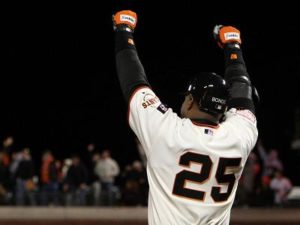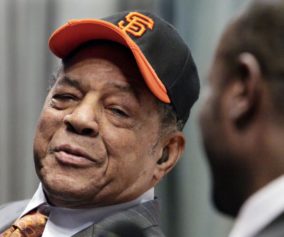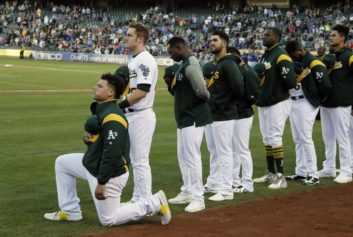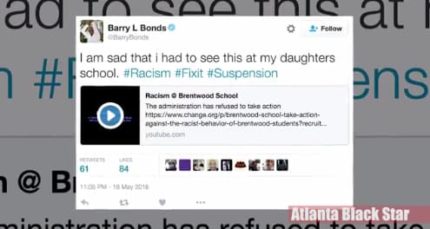
That is an argument that can and surely will be made as voting nears for Bonds to be enshrined in the sacred place of the sport’s most prominent participants.
Of course, there will be others who argue the opposite, that Bonds is a cheater, despite the controversy around his tests. Their position is: Where there is smoke, there are steroids. And many of the voters are “baseball purists” who shudder at the thought of Bonds atop their beloved sport.
One thing is certain: Bonds hit 768 home runs, more than anyone in baseball history, a record that cannot be ignored forever.
Bonds, 50, said in a statement, “(This) ruling is something that I have long hoped for. I am humbled and truly thankful for the outcome as well as the opportunity our judicial system affords to all individuals to seek justice.”
In a way that shows he has grown as a human being or that he’s seeking to have voters empathize with him, Bonds added: “This has been a long and strenuous period in my life; I very much look forward to moving beyond it. I do so without ill will toward anyone.”
In a 10-1 decision, the Ninth U.S. Circuit Court in San Francisco overturned a jury’s felony conviction of baseball’s all-time home run leader, saying there was not enough evidence to support the charge. The ruling, if it stands, means Bonds cannot be retried.
“An enormous weight has been lifted from his body and soul,” said Bonds’ lawyer Dennis Riordan, who said the prosecution “ruined (Bonds’) career.”
It surely didn’t help.
The prosecution stemmed from an investigation into distribution of performance-enhancing drugs by BALCO. The lab’s chief executive and several others, including Bonds’ personal trainer, Greg Anderson, were sentenced to prison for drug distribution. Bonds passed all baseball-monitored performance-enhancing drug tests. He testified to a federal grand jury investigating the Bay Area Laboratory Co-Operative in 2003 that he used “the cream” and “the clear” but did not know they were performance-enhancing drugs. During that testimony, Bonds was asked if he ever took steroids, and he answered no.
Anderson never said he provided Bonds steroids, despite prison time hanging over him. Prosecutors disclosed in 2004 that Bonds had tested positive for steroids, but the sample had first been deemed a passing mark. Bonds told the grand jury he believed the substances Anderson gave him were flaxseed oil and arthritis balm.
Bonds, testifying before a grand jury in 2003 under a grant of immunity, described his interactions with Anderson but denied ever knowingly using steroids or other banned drugs. He was charged with three counts of perjury, but the prosecution’s case was damaged when Anderson refused to testify and instead was sentenced to a year in prison for contempt of court.
Bonds’ jury deadlocked on the perjury charges in 2011, but convicted him of obstructing justice for his reply to a prosecutor’s question about whether Anderson had ever given him performance-enhancing drugs.
Bonds launched into an aimless rant about his life as a “celebrity child,” the son of ex-ballplayer Bobby Bonds, and his friendship with Anderson. “If you want to come to my house and talk about fishing, some other stuff, we’ll be good friends. You come around talking about baseball, you go on,” Bonds said. “I just don’t get into other people’s business.”
He flatly denied that Anderson had given him drugs when the same question was asked later, but jurors found that his initial response was an attempt to throw the steroid investigation off course. He was sentenced to 30 days of house arrest, and served that sentence while appealing his conviction.
Bonds’ answer “says absolutely nothing pertinent to the subject of the grand jury’s investigation” and could not have diverted prosecutors or influenced the decision on whether to indict anyone, Judge Alex Kozinski said in an opinion joined by four other judges. If Bonds’ answer was unclear, Kozinski said, it was up to the prosecutor to clarify it.
Nothing is really clear in this whole mess, except that the man who hit the most home runs in history is not in the Baseball Hall of Fame.


